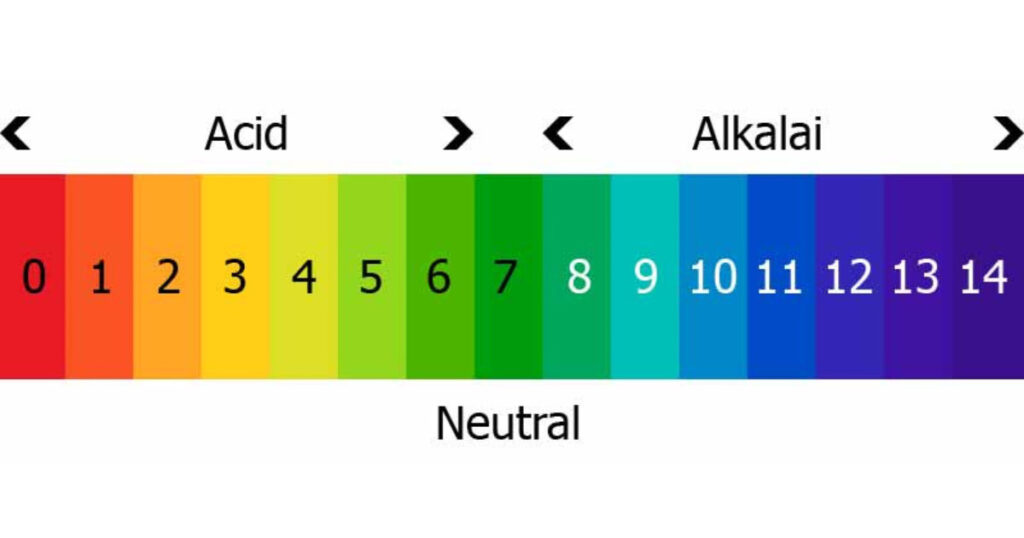Considering how through Shilajit gut health can be improved, there are some fascinating research points to consider.
Looking only at gut health from a chemical balance perspective for the moment, rather than exclusively from the probiotic and prebiotic dimensions of gut health, there are some interesting results for how this amazing resin plays a part.
Table of Contents
The Shilajit Gut Health Connections
We all know that the gut is the most critical part of our body. It not only helps with digestion, but also aids in absorbing nutrients, and protects us from harmful bacteria. Without this part of the human puzzle, we would be lost.
The gut needs a balance of acids and minerals to function properly, which we are well aware of. But what we don’t know is that there is a way to get these minerals from the ground.
Yes! Even with the impacts of chemical fertilisers and poor commercial agricultural practices that have depleted our soils over the past decades.
Shilajit gut health wisdom goes back thousands of years, It is an Ayurvedic medicine that is rich in minerals. It can be used as an aid for digestion and boosting your immune system. But it doesn’t stop there. It’s also loaded with essential acids; more on that a little later.
With what is probably best described as the increasing prevalence of high-stress lifestyles and poor diets, we see an alarming decline in good gut health. When it comes to living a healthy life, a healthy gut is essential.
This decline in good gut health can largely be attributed to the following:
- Increased intake of processed and unhealthy foods,
- Less time for exercise and relaxation, and
- Taking antibiotics and anti-inflammatory medicines which reduces the production of digestive acids in your stomach.
But gut health is not just about a balance in your good gut bacteria. Acids have a key part to play too.
Acids in the Stomach
Your stomach is home to a pretty intense mix of acids. With a natural pH of somewhere between 1 and 2, the strength of stomach acid can be more potent than some industrially produced acids.
Stomach acid consists primarily of a mixture of hydrochloric acid, potassium chloride, and sodium chloride. 1

To be clear, we are talking about the naturally acidic state of the stomach which enables it to break down food in the digestion process. This is not to say that your body is in an acidic state, nor that having a pH of between 1 and 2 in your stomach acid is something to try and neutralise to convert to an alkaline.
The alkalizing foods and alkaline diet topics are different conversation points at this stage.
What we are looking at here is when the pH balance in the gut is thrown to a level that is not good for you.
Acid can build up in the stomach in a way that results in tissue damage including ulceration. This is normally the result of the pH levels in the stomach moving between 0 and 1, which is not ideal.
Conversely, shifting to a weaker acidic state in your stomach acid (e.g. a pH of 2 to 3, or higher on the numeric scale shown above) can contribute to a range of digestive issues.
Shilajit Gut Health through Acids
Studies completed that looked at how the stomach responded under an aqueous administration of Mumijo (another name for Shilajit) when exposed to the harmful effects of acetic acid revealed interesting results.
It was found that the acetic acid had triggered ulcerations as a reaction to exposure to the acid. The aqueous administration of Mumijo in this had inhibitory effects and protect against mucosal damage.
Is Fulvic Acid Good for Gut Health?
Here are 3 amazing Shilajit gut health facts you probably weren’t aware of. Shilajit has been found to:
- help with the reduction of peptic ulcers
- support gut health through its anti-microbial properties, and
- strengthen the gut biome by influencing the redox state.
A recent study concluded that peptic ulcers may be able to be effectively dealt with through the potent antiulcer properties and activity of this resin. 2
The effects observed were largely attributed to the active constituent in the resin, which is also echoed through similar studies into the properties of Fulvic Acid found in Mumijo. 3
Other studies have looked at the positive effects of Benzoic Acid found in it which has been linked to having anti-microbial properties. This is a Shilajit which is of the same origin as the one we offer through the shop on our website. 4 5

Benzoic Acid’s anti-microbial properties are also suggested to support the digestive system by reducing the potential for Small Intestine Bacterial Overgrowth (SIBO). 6 7
How this miracle resin supports good gut health here is understood to be that it can strengthen the gut biome through Fulvic Acid’s ability to influence the redox state.
This is where there is a shift in electrons and a change in the oxidisation state with atoms, ions, or certain atoms in a molecule. 8
Can Shilajit Upset Your Stomach?
Like with many minerals and other herbal compounds, the excessive use of Shilajit is not a good idea. Anything taken to a degree of excess has the potential to bring about complications of varying scales.
Various sources report that too much Shilajit too often is reported to potentially cause nausea, dizziness, itching sensations on the skin, and an increased heart rate.
Nausea can also be triggered as a psychosomatic response in the body with the simplest of triggers coming from sensations like smell, touch, movement, and even sound. If you have certain anchors that connect your sense receptors to how you identify Shilajit, such as thoughts connected to smells, you may find this results in a triggering of nausea. 9
How Long Does It Take for Shilajit to Work?
Depending upon your needs and the specialist advice you have been given, we have had feedback from our Customers and community that the results they have seen with their Shilajit gut health strategies blow our minds.
One lady who has long struggled with brain fog and digestion issues came back to us within 4 days of making Shilajit and Sea Moss a part of her routine. Her account was that she had not felt like she had the mental capacity to focus for years since having children.
After adding Shilajit to her day she told us that she was able to play piano again and that she felt like she had been sleeping much better.
We have made our Shilajit gut health routine one that we stick to consistently. Simply adding a pea-sized drop of resin to lukewarm water has made a difference to our energy levels, and I believe it has helped improve my digestion.
FAQs
Does Shilajit Improve Digestion?
Some studies suggest that Shilajit may improve gut health by increasing the diversity of gut microbiota and enhancing the absorption of nutrients. It has also been shown to have anti-inflammatory properties, which may help reduce inflammation in the digestive tract. 10
Additionally, some people use Shilajit as a digestive aid due to its potential to stimulate the production of digestive enzymes. However, further research is needed to fully understand the effects of Shilajit on digestion and gut health.
What happens if we take Shilajit Daily?
Taking Shilajit daily may have potential health benefits due to its rich composition of fulvic acid, humic acid, and other plant-based metabolites. These benefits may include improved energy levels, better cognitive function, reduced inflammation, and potential anti-aging effects.
However, as with any supplement or medication, it is important to consult with a healthcare professional before taking Shilajit to ensure its safe and appropriate use. It is also important to follow the recommended dosage instructions as taking too much may lead to adverse effects.
Does Shilajit Detox Your Body?
Fulvic acid, one of the main active components of Shilajit, has been shown to have antioxidant and anti-inflammatory properties that can help protect the body from toxins and pollutants. Additionally, some studies suggest that Shilajit may help to improve liver function, which is an important part of the body’s natural detoxification process.
What are the Side Effects of Shilajit on the Stomach?
While shilajit is generally considered safe for consumption, some people may experience mild gastrointestinal discomforts, such as nausea or diarrhea. It is also possible for shilajit to interact with certain medications, so it is important to talk to a healthcare professional before taking it if you are on any medication.
However, these side effects are relatively uncommon, and shilajit is generally well-tolerated by most people when taken as directed. It is always recommended to follow the dosage instructions on the packaging and to talk to a healthcare professional before adding any new supplement to your routine.
Conclusion
In a world where processed foods and chemical fertilisers have taken over, maintaining a healthy gut can be a challenge.
However, our ancestors had access to natural remedies, like Shilajit, a gift from the mountains rich in minerals like selenium, calcium, and iron, that can help balance our gut health. Shilajit gut health strategies have been relied upon for thousands of years in India, and good reason.
As a very special Ayurvedic substance (considered by some to be an herb) that has been used for thousands of years in India, it is a gift from the mountains. Apart from essential acids, it is also rich in many other minerals including:
- Magnesium
- Potassium
- Copper
- Zinc
- Manganese
- Phosphorous
- Selenium, and
- Chromium.
It has been known to strengthen the immune system, lower cholesterol, improve energy levels and help with digestion. Using Shilajit gut health approaches is widely relied upon by people all over the world.
Studies suggest that Shilajit can improve gut health by increasing the diversity of gut microbiota, enhancing nutrient absorption, and even reducing inflammation in the digestive tract. It is also a digestive aid that can stimulate the production of digestive enzymes.
Additionally, Shilajit has anti-microbial properties that can support the digestive system by reducing the potential for Small Intestine Bacterial Overgrowth (SIBO).
While the excessive use of Shilajit can cause complications, taking it in moderation can have potential health benefits such as improved energy levels, better cognitive function, and potential anti-aging effects.
Our Shilajit gut health routine consists of adding a pea-sized drop of resin to lukewarm water daily. Our Customers have shared with us that they have seen incredible results, from improved digestion to reduced brain fog.
We offer high-quality Shilajit that is safe for consumption and can be a natural solution to your gut health struggles. Give it a try and feel the difference in your body.
References
- “How Strong Is Stomach Acid?” – K. Holland, 2 October 2020 [Healthline] [Archive] ↩︎
- “Ulcer healing activity of Mumijo aqueous extract against acetic acid induced gastric ulcer in rats” – N. Shahrokhi, Z. Keshavarzi, M. Khaksari, January 2015 [PubMed] [Archive] ↩︎
- “Effects of Na-FA on gastrointestinal movement and gastric ulcer in mice” – Y. Li, B. Li, P. Li, J. Liu, J. Cui, Z. Mei, October 2011 [PubMed] [Archive] ↩︎
- “Compound Summary – Benzoic Acid” – PubChem, 16 September 2004 [PubChem] [Archive] ↩︎
- “Anti-Microbial, Anti-Oxidant and Anti-Ulcerogenic Effects of Shilajit on Gastric Ulcer in Rats” in the American Journal of Biochemistry and Biotechnology – M. K. Kotb-El-Sayed, H. Amin, A. Al-kaf, January 2012 [ReseachGate] [Archive] ↩︎
- “Inflammatory bowel disease: Progress and current concepts of etiopathogenesis” – F. Scaldaferri, C. Fiocchi, December 2007 [ResearchGate] [Archive] ↩︎
- “Gut Microbiota and Nonalcoholic Fatty Liver Disease: Insights on Mechanism and Application of Metabolomics” – X. He, G. Ji, W. Jai, H. Li, 15 March 2016 [PubMed] [Archive] ↩︎
- “Therapeutic Potential of Fulvic Acid in Chronic Inflammatory Diseases and Diabetes” – J. Winkler, S. Ghosh, 10 September 2018 [PubMed] [Archive] ↩︎
- “Psychosomatic Disorder” – Cleveland Clinic, 30 April 2021 [Cleveland Clinic] [Archive] ↩︎
- “A Comprehensive Toxicological Assessment of Fulvic Acid” – C. Dai, X. Xiao, Y. Yuan, G. Sharma, S. Tang, 16 December 2020 [PubMed] [Archive] ↩︎
Medically Reviewed by
Dr. Ter-Er Kusu-Orkar MBCHB MRes (Dis) MRCS (RCSEd)

Last Updated on 5 months by D&C Editorial Team



Interesting article… How do you determine your stomach’s pH level?
I suffer from IBS and acid reflux issues, so introducing Shilajit into my diet may be beneficial…
Thank you for your feedback, Sam.
The way to check the pH of the stomach can be complicated, and there are simpler ways too. As the response would be quite expansive, I’ve put an article together to help give you a few starting points to dig deeper into. It looks at various ways of stomach acid testing. You may find that what is covered here helps with the importance of seeking assistance in evaluating the cause of reflux too.
This is by no means medical advice, so if you feel that the concerns you have warrant support in this area, I would suggest you seek out a trusted medical professional in your area to assist you.
As far as how Shilajit could support IBS and/or reflux, you’ll need to consult a specialist about this specifically so they can evaluate your entire situation rather than looking at something in isolation.
Triggers for reflux that might be reduced through Shilajit could include aspirin, but beyond that the peer reviewed research is still quite light.
IBS features as a point of consideration in this study with the primary consideration being that everything the human body is connected, and IBS needs to be looked at holistically.
I hope this helps you.
Thanks for the response, Matthew…
I’ve just seen you posted a new article on this, so I’ll give that a read too (though I think I’ll wait until after lunch lol)…
It’s a pleasure, Sam. Thank you!